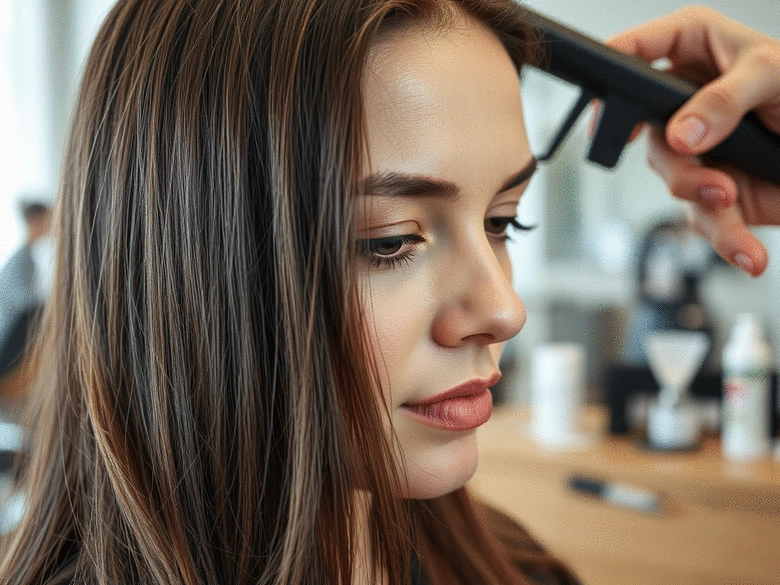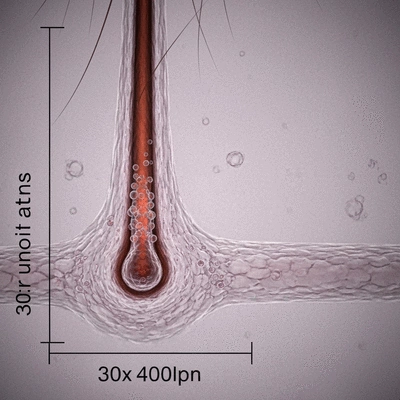Impact of
Pollution
- Airborne toxins clog follicles.
- Inflammation & irritation.
- Oxidative stress weakens hair.
As you navigate your hair health journey, have you considered the hidden environmental factors affecting your locks? From pollution to diet, understanding these influences can lead to proactive choices that promote healthier hair.
The visual below illustrates the key environmental and lifestyle factors contributing to hair loss, highlighting how various elements in our surroundings and daily habits impact hair health.
Restrict blood flow, reducing nutrient delivery to hair follicles, leading to thinning.
Lack of essential vitamins (iron, zinc, biotin) can hinder healthy hair growth and cause thinning.
Stress (cortisol) and hormonal shifts can prematurely push hair into resting phase, leading to shedding.
Have you ever wondered about the environmental factors that might be contributing to your hair loss? It’s a common concern, and understanding these influences can empower you to take action. From pollution to lifestyle choices, various elements in our surroundings can affect the health of our hair. Let’s delve into the significant environmental factors that may be playing a role in your hair loss journey.
Pollution is not just an environmental issue; it’s also a serious threat to hair health. When we think about air quality, we often overlook how it can impact our hair follicles. Let’s explore how pollution affects our hair and what we can do about it!
Air pollution consists of harmful particles that can settle on our hair and scalp. These particles can block hair follicles, preventing healthy growth. Imagine your hair follicles are like tiny factories; when they’re clogged, they can’t produce strong, healthy hair. That’s why it’s essential to keep your scalp clean and protected from these environmental aggressors. Research highlights the connection between air pollution and hair loss, indicating that exposure to pollutants can trigger oxidative stress and inflammation in hair follicles.
Incorporating a gentle cleansing routine can help remove any buildup caused by pollution. Think of it as giving your hair a fresh start daily!
Did you know that heavy metals like lead and arsenic can be lurking in our environment? These metals can accumulate in the body and disturb our hair growth cycles. They may disrupt the biological processes in hair follicles, causing them to enter a resting phase prematurely. This can lead to noticeable thinning over time. For instance, the National Council on Aging (NCOA) provides statistics on hair loss statistics, which indirectly reflect the broader impact of environmental factors, including heavy metals.
To minimize this risk, consider drinking filtered water and using products free from heavy metals. This small change can make a significant difference in your hair health!
Oxidative stress is a condition caused by an imbalance between free radicals and antioxidants in the body. This imbalance can lead to cellular damage in hair follicles. Think of it as wear and tear on your hair’s building blocks. Oxidative stress can be triggered by pollution, poor diet, and even stress itself.
To combat oxidative stress, focus on incorporating antioxidant-rich foods into your diet. Foods like berries, nuts, and leafy greens can help protect your hair and promote healthier growth!
The quality of the water we use every day plays a crucial role in our scalp health. Contaminated water can harm not just our skin, but also our hair. It’s surprising how something we often take for granted can impact our hair care routine!
Water quality affects hair growth in several ways. For one, hard water can leave minerals on the scalp, leading to buildup that can hinder hair growth. If you notice your hair feeling dull, it might be time to check your water quality! Filtered water can help reduce this buildup, allowing your hair to thrive.
Additionally, soft water can help your shampoo work better, ensuring that your hair is cleaned without harsh residues. The FDA also conducts studies on the possible connection between hair loss and certain hair cleansing products, which can be influenced by water impurities.
Our daily habits can significantly affect our hair health. Factors such as smoking, alcohol consumption, and diet choices all come into play. Understanding these connections can help you make informed decisions for your hair’s future!
Both smoking and excessive alcohol intake can restrict blood flow to the scalp, affecting the nutrients that reach your hair. When your hair doesn’t receive proper nourishment, it can result in thinning and loss. By making healthier lifestyle choices, you can enhance your hair’s vitality and growth.
Consider reducing or eliminating these habits to allow your hair to recuperate and flourish!
Your diet plays a vital role in your hair health. Without essential vitamins and minerals, your hair may not grow as it should. Are you getting enough iron, zinc, and biotin in your meals? These nutrients are crucial for maintaining strong, healthy hair!
Think about incorporating foods like spinach, beans, and eggs into your diet. Simple changes can lead to big improvements in your hair health!
Stress is a well-known factor in hair loss, affecting the growth cycle of your hair. When under stress, your body produces cortisol, which can lead to telogen effluvium, a condition where hair falls out more than usual. Managing stress is essential for maintaining healthy hair!
Try practicing relaxation techniques such as yoga or meditation to help reduce stress levels. A calmer mind can lead to a healthier head of hair!
Hormonal fluctuations, whether from pregnancy, menopause, or other factors, can significantly impact hair growth. Changes in hormones can cause hair to enter a resting phase, which may lead to shedding. It’s essential to understand these changes so you can tackle them effectively.
Consulting with a healthcare provider can help you navigate these hormonal shifts and find suitable solutions to support your hair health.
To enhance your hair's resilience against environmental factors, consider incorporating a weekly deep conditioning treatment into your routine. Look for products that include nourishing ingredients such as argan oil or keratin, which can help repair damage and fortify hair strands, making them less susceptible to the effects of pollution and stress.
Understanding hair loss can feel like a complex puzzle, but breaking it down into manageable parts makes it much easier to tackle. At What Causes Hair Loss, we emphasize that addressing both environmental and lifestyle factors is crucial for effective hair loss prevention. By recognizing how pollution, diet, and daily habits intertwine, you can take proactive steps towards maintaining your hair health!
Here are some key insights to remember:
These insights provide a foundation for making informed choices about your hair care routine. Remember, understanding the causes is the first step towards finding the right solutions!
As a dermatologist, I often see patients who overlook the environmental aspects of hair loss. It's easy to blame genetics or age, but lifestyle choices play a significant role too. For instance, poor diet, smoking, and stress not only affect your overall health but also your hair health!
By taking a holistic approach, you can improve your hair health and prevent further loss. Let’s make hair care a priority together!
Taking control of your hair health doesn’t have to be daunting! Here are some practical steps you can implement in your daily routine:
Each of these steps can make a significant difference in your hair health journey. Remember, incremental changes lead to remarkable results over time!
Staying informed about hair loss is essential. I encourage you to engage with professional resources and follow local data regarding hair health trends. This not only helps you understand the broader picture but also empowers you to make better choices.
Look for local seminars, workshops, or online webinars focusing on hair health—these can be a treasure trove of information!
Sometimes, it’s best to seek expert advice. Consulting with a dermatologist or a trichologist can provide personalized insights tailored to your specific needs. They can help identify unique factors contributing to your hair loss and recommend targeted treatments.
Don't hesitate to book an appointment if you have concerns—getting professional guidance can be a game-changer!
Your experiences matter! I invite you to join the conversation about hair health. Share your stories, challenges, and tips with others who are navigating similar journeys. Whether through comments on our blog or social media, your insights can inspire and help someone else take that first step towards healthier hair.
Let’s build a community focused on support and knowledge sharing. Remember, you’re not alone on this journey!
Here is a quick recap of the important points discussed in the article:
At What Causes Hair Loss, we unravel the complexities of hair loss with science-backed insights, empowering you with dermatologist-reviewed guides and effective solutions for your hair health journey.
Dermatologist-Reviewed Insights


